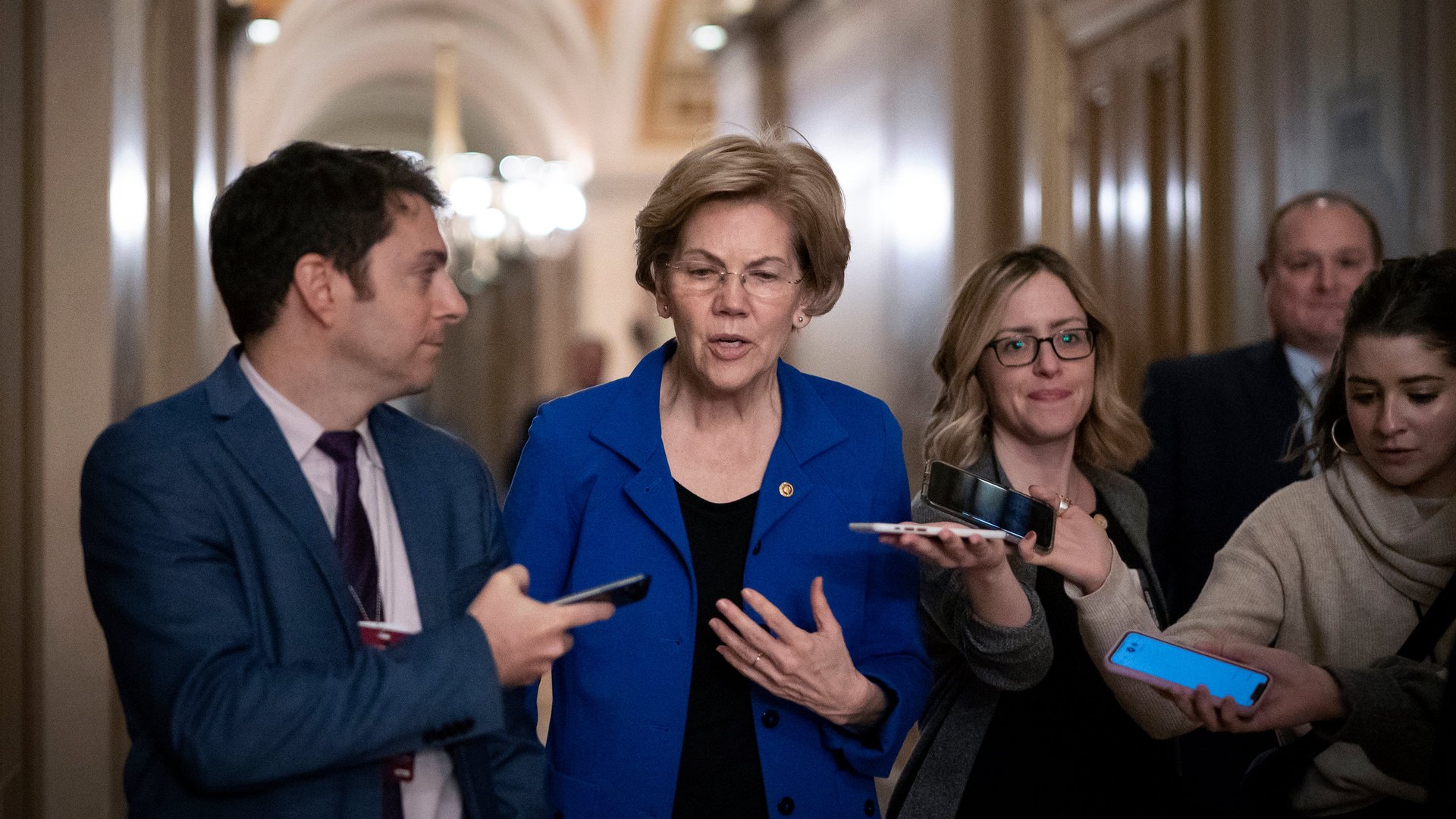Senate Republicans’ corporate rescue looks more like a “slush fund,” say Democrats
This weekend the goal of the US Congress has been to get a bipartisan economic rescue moving forward before the stock markets open Monday.


This weekend the goal of the US Congress has been to get a bipartisan economic rescue moving forward before the stock markets open Monday.
Achieving that goal now looks less likely as lawmakers and the White House spar over restrictions on a $500 billion fund that will be used to rescue businesses in danger of failure due to coronavirus-related losses. That cash is intended for companies that are vital to national security, airlines, and others, and it’s also meant to be distributed to states to help their hard-hit small businesses.
But the draft legislation gives enormous discretion to treasury secretary Steve Mnuchin in deciding how the money is spent, and offers little in the way of transparency about where the money ultimately goes. Mnuchin can waive provisions that prevent companies from using funds to buy their own stock, and Democratic senators say there aren’t real requirements that businesses keep workers employed, provide them paid leave, or limit pay and bonuses to management.
The bill is in stark contrast to the rescue fund created after the 2008 financial crisis, which included redundant oversight measures, like its own special inspector general, and required the government to identify recipients of aid publicly. Recipients of loans in the current bailout legislation wouldn’t need to be disclosed for six months.
The lack of transparency also raises questions about whether any money will flow to Donald Trump’s businesses, particularly his hotels, given his record of diverting public spending to his private companies. The administration has repeatedly shifted money away from congressionally approved work toward its pet projects, leading to constitutional challenges.
“We’re not here to create a slush fund for Donald Trump and his family, or a slush fund for the Treasury Department to be able to hand out to their friends,” senator Elizabeth Warren, who monitored the 2008 bailouts as chair of the Congressional Oversight Panel, told reporters today. “We’re here to help workers, we’re here to help hospitals. And right now what the Republicans proposed does neither of those.”
Warren said there weren’t enough details about the proposal available, but said that what she currently knew would prevent her, and should prevent other members of her party, from supporting it. Senate Republicans are hoping to pass a procedural vote today that would help fast-track the eventual bill, but that would require trust between Democrats and Republican leader Mitch McConnell, which is in as short supply in Washington, DC as Covid-19 tests are around the country.
Lawmakers face the dilemma of trying to speedily get money into the economy— the US response to the pandemic lags behind that of many other countries—without passing legislation that misses the mark or funnels resources to those who don’t need them. Economists are forecasting a recession, and layoffs for hundreds of thousands of workers whose employers have been hit by social distancing measures.
Getting financial aid to those people—who still need to pay rent, student loans, and medical bills, not to mention put food on the table—will be key to ensuring that the cost of fighting the coronavirus isn’t paid by the least well-off.
“Bailouts are different from cash checks from the government—you can make them as conditional as you like,” Adam Posen, a member of the Bank of England’s monetary policy committee from 2009 to 2012, told Quartz this week. “If you are going to bail them out, wipe out shareholders. Or give the government, on behalf of the American people, some stake in the upside, [and] massively restrict payouts and dividends in the future.”